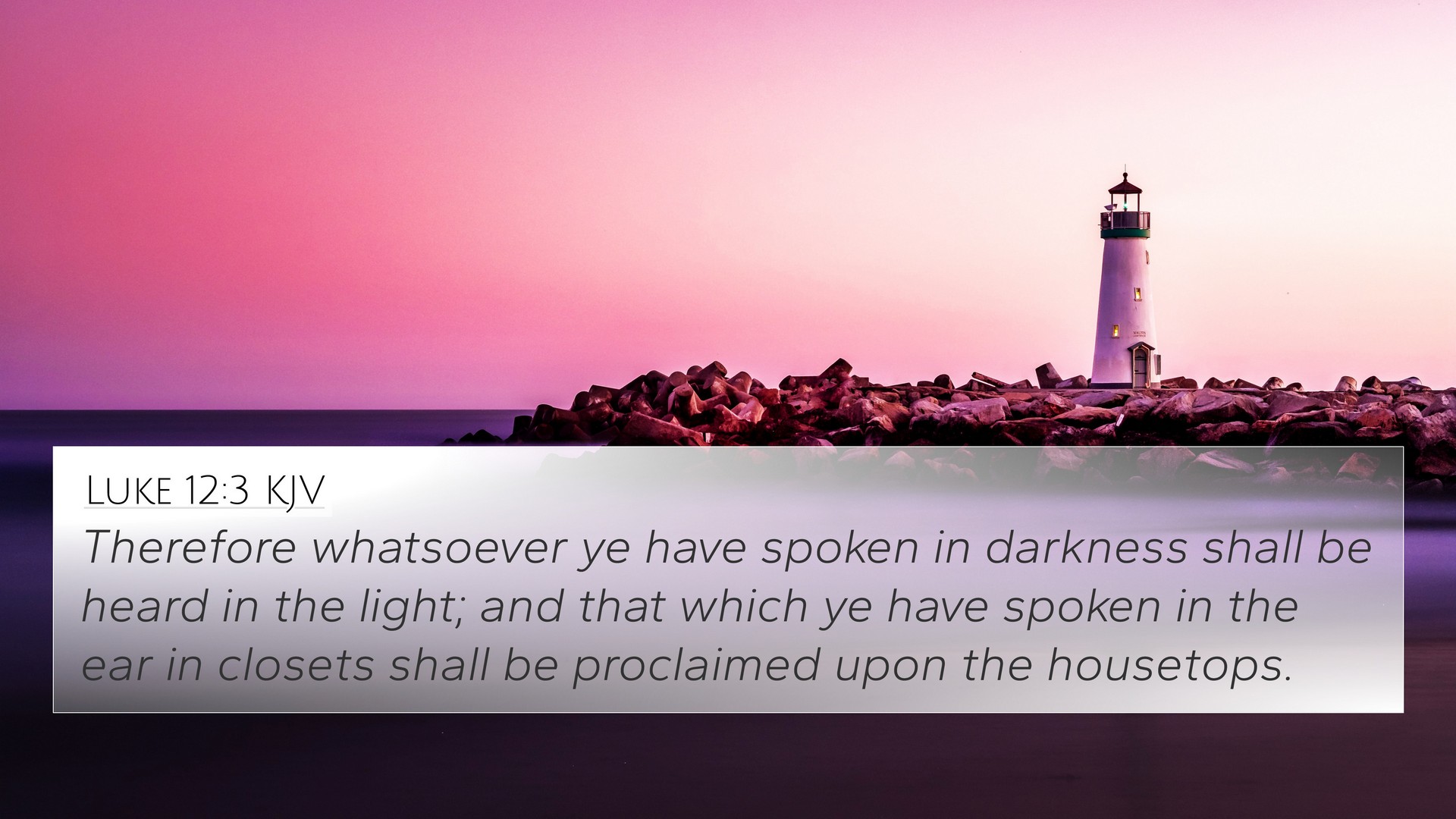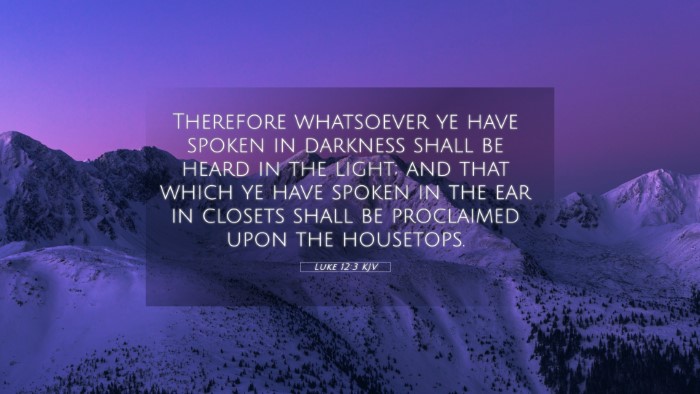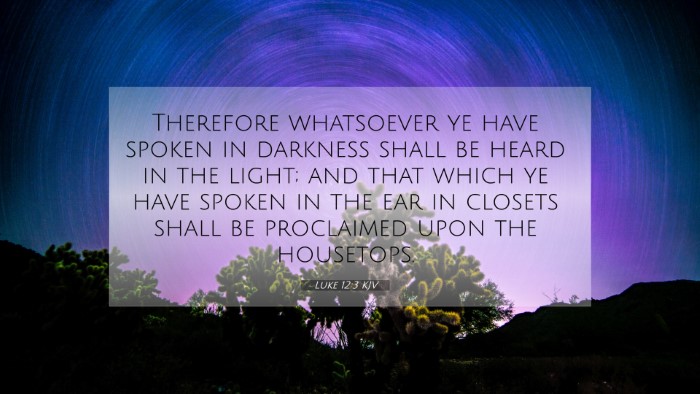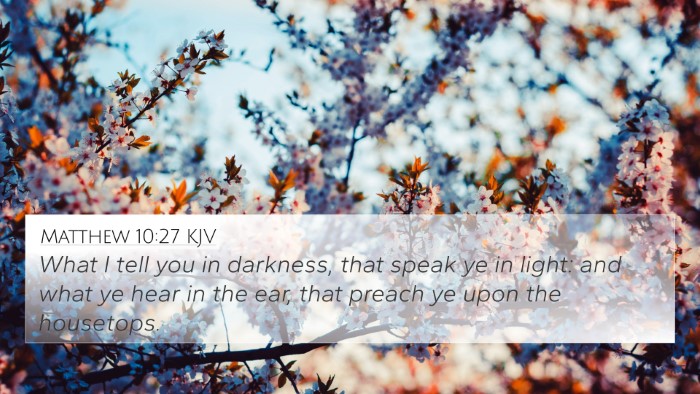Understanding Luke 12:3
Luke 12:3: "Therefore whatsoever ye have spoken in darkness shall be heard in the light; and that which ye have spoken in the ear in closets shall be proclaimed upon the housetops."
This verse carries profound implications about the nature of our words and the scrutiny they will receive. In this summary, we explore insights from public domain commentaries, emphasizing the importance of accountability in speech.
Verse Meaning and Insights
The primary message in Luke 12:3 revolves around the concept that all spoken words, particularly those whispered in private, will ultimately be made public and known to all. This principle suggests a moral accountability that underpins human communication.
Insights from Matthew Henry
Matthew Henry emphasizes the inevitability of truth being uncovered. He notes that secret conversations, often filled with gossip or sinful intentions, will not stay hidden. The day of judgment will reveal all hidden things, and believers should be mindful of their words, as light will ultimately expose darkness.
Insights from Albert Barnes
Albert Barnes explains that this passage indicates the judgment that follows careless words. The implications of spoken words extend not just to what is said, but to the attitudes and intents behind the words. He also points out that the phrase "upon the housetops" illustrates a dramatic revelation, where private statements become public knowledge.
Insights from Adam Clarke
Adam Clarke reinforces the notion of transparency in how one conducts oneself verbally. He argues that what is whispered in private may have repercussions that reach far beyond the immediate context, reminding readers that God watches over all human actions, including what is spoken in confidence.
Cross-References for Deeper Understanding
- Matthew 10:27: "What I tell you in darkness, that speak ye in light: and what ye hear in the ear, that preach ye upon the housetops." - A parallel thought on the revelation of clandestine truths.
- Romans 2:16: "In the day when God shall judge the secrets of men by Jesus Christ..." - Affirmation of God’s judgment on spoken words.
- Mark 4:22: "For there is nothing hid, which shall not be manifested; neither was any thing kept secret, but that it should come abroad." - Similar idea of hidden things being revealed.
- Ecclesiastes 12:14: "For God shall bring every work into judgment, with every secret thing, whether it be good, or whether it be evil." - A reminder of the accountability of every action, including speech.
- James 1:19-20: "Wherefore, my beloved brethren, let every man be swift to hear, slow to speak, slow to wrath..." - Advocacy for careful speech to avoid misjudgment.
- 1 Peter 1:17: "And if ye call on the Father, who without respect of persons judgeth according to every man's work, pass the time of your sojourning here in fear." - A reminder of accountability before God for our words.
- Galatians 6:7: "Be not deceived; God is not mocked: for whatsoever a man soweth, that shall he also reap." - Highlighting the consequences of one’s speech.
Thematic Connections
The themes present in Luke 12:3 resonate throughout the Bible, establishing a significant dialogue across various texts:
- Accountability: The need for acknowledging the impact of one’s utterances is a recurrent theme.
- Truth and Revelation: Many biblical texts emphasize the ultimate revelation of truth, aligning with the message of Luke 12:3.
- Moral Wisdom: Encouragement for believers to seek wisdom in what they communicate, echoing throughout Proverbs.
Conclusion
In conclusion, Luke 12:3 serves as a powerful reminder of the nature of our words and the inevitable revelation of our true selves. As we delve into the broader thematic connections and cross-references, it reinforces our understanding of God’s overarching moral order, inviting us always to consider the weight of our speech.








